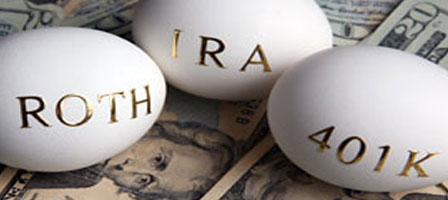Tax Pro Plus
2999 Overland Ave.
Suite 204
Los Angeles, CA 90064
Map It!
Ph: (310) 827-4829
Fax: (310) 842-7160
info@taxproplus-la.com
Looking for Ways to Maximize Your Retirement Contributions?
 Article Highlights:
Article Highlights: - Key Benefits
- Solo 401(k) Contributions
- Discretionary Funding
- Where Deducted
- Deadlines
- Roth Option
- Manage your own account directly without any brokers, banks, or trust companies as middlemen.
- Generally contribute larger amounts, approximately equal to the 401(k) and profit-sharing amounts combined.
- Legally avoid the unrelated business income tax (UBIT) that would apply to certain self-directed IRA transactions.
- Make Roth contributions to the 401(k) element (not the profit-sharing part) of the plan, regardless of the AGI limitations that apply to regular Roth contributions.
- Transfer existing retirement funds into the Solo 401(k).
- Direct your investments with absolutely no restrictions on investment choices (including real estate, private companies, foreign assets, precious metals, etc.).
Given sufficient income, a self-employed individual and spouse (assuming the spouse is employed in the same business) may contribute, for 2016, up to $106,000 combined. Because of the way the contribution is calculated, a larger contribution can usually be made into a Solo 401(k) than to a Keogh or SEP IRA at the same income level.
Discretionary Funding – The funding of the Solo 401(k) plan is completely discretionary and flexible every year. Funding can be increased, decreased, or skipped entirely, if necessary.
Where Deducted – If your business is organized as a Subchapter S or C corporation, or LLC electing to be taxed as a corporation, then you are an employee of the business, so the salary-deferral contribution reduces your personal W-2 earnings and the profit-sharing contribution is deducted as a business expense.
For a sole proprietorship, a partnership, or an LLC taxed as a sole proprietorship, the owner's salary-deferral and profit-sharing contributions are deductible only from personal income (i.e., on page 1 of Form 1040, as an adjustment to gross income), and not as an expense of the business.
Deadlines – The deadline for establishing a Solo 401(k) is December 31st for an individual or the fiscal year end for corporations. For unincorporated businesses, the deadline for making the contributions is the regular April income tax filing due date plus extensions. For incorporated businesses, the deadline is 15 days after the close of the fiscal year.
Roth Option – The 401(k) portion of the contribution can be designated as a non-deductible qualified Roth contribution, provided the plan document permits Roth contributions.
If you think a Solo 401(k) might be right for you, please call this office for further details and to determine if your particular circumstances permit you have and whether you will benefit from a Solo 401(k).
|
|  |